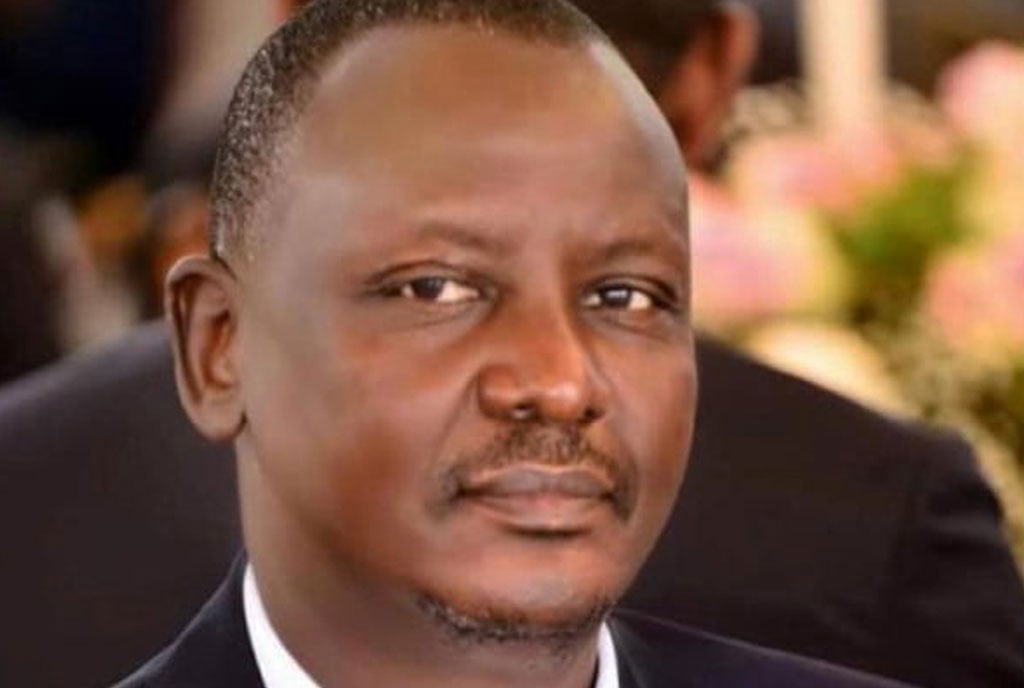Court to rule on police DNA form amid discrepancies in Katanga trial

A forensic scientist, Mr Andrew Kizimula Mubiru, hands over the exhibits after testifying before court on August 27, 2024. PHOTO/ABUBAKER LUBOWA
What you need to know:
- Defence lawyers claimed they had observed some discrepancies, including the appearance of a missing sample (H) that was not disclosed to them but was included in the evidence submitted to the court.
High Court Judge Isaac Muwata will on Thursday rule on whether police form 17A will be relied on in the ongoing trial in which five people are charged in connection with the murder of businessman Henry Katanga.
This was after defence lawyers last week questioned the reliability of the police form 17A, a document used to request DNA analysis, by the acting director of Forensics at the Uganda Police Force, Mr Andrew Kizimula Mubiru.
Defence lawyers claimed they had observed some discrepancies, including the appearance of a missing sample (H) that was not disclosed to them but was included in the evidence submitted to the court.
Mr Elison Karuhanga, one of the defence lawyers, during cross-examination, put it to Mr Kizimula how he carried out a DNA analysis that was never requested for by the police.
Core to their cross-examination, the defence lawyers argued that the police can only carry out DNA analysis relating to ascertaining parentage but not to be used in criminal trials.
They further averred that Mr Mubiru usurped the role of a government chemist, who has been doing DNA examinations, alleging that this was intended to allow his office to be used to manipulate and manufacture evidence by the DPP against Katanga’s widow and orphans.
To support their narrative, Mr Mubiru was tasked to read the summary of the DPP's evidence presented before the Nakawa court on February 22 in which the State alluded to a DNA report to be used at the trial, yet the said report was authored and signed on April 30.
Another defence lawyer, Mr MacDosman Kabega, handed Mr Mubiru a copy of the Court of Appeal judgement to read out in court in which three justices observed that he included a sample that was never given to him for DNA analysis in the infamous child sacrifice case of Masaka businessman Kato Kajubi.
The eighth prosecution witness during cross-examination also admitted that testing of DNA samples can be polluted but he was quick to say that they do everything possible to minimise it.
The other defence lawyers representing the accused persons are Mr Peter Kabatsi, Mr Elison Karuhanga, Mr Bruce Musinguzi, and Mr Jet Tumwebaze.
The prosecution side that has since produced eight witnesses against the accused persons is led by Ms Samali Wakooli, Mr Jonathan Muwaganya and Ms Anna Kiiza.
Ms Katanga is accused of murdering her husband on November 2 last year at their matrimonial home in Mbuya, Kampala, an offence she entered a plea of not guilty. She is jointly charged alongside her two daughters, Martha Nkwanzi Katanga and Patricia Kakwanza, who both face lesser charges of destroying evidence and being an accessory after the fact of murder.
The other accused persons are Otai Charles, a medic who allegedly appeared at the Katanga’s residence shortly after the incident, and George Amanyire, a shamba boy. The duo also faces lesser charges of accessory after the fact of murder and destroying evidence.
Ms Katanga’s co-accused are all out on bail while Ms Katanga is still incarcerated at Luzira Women’s Prison.



